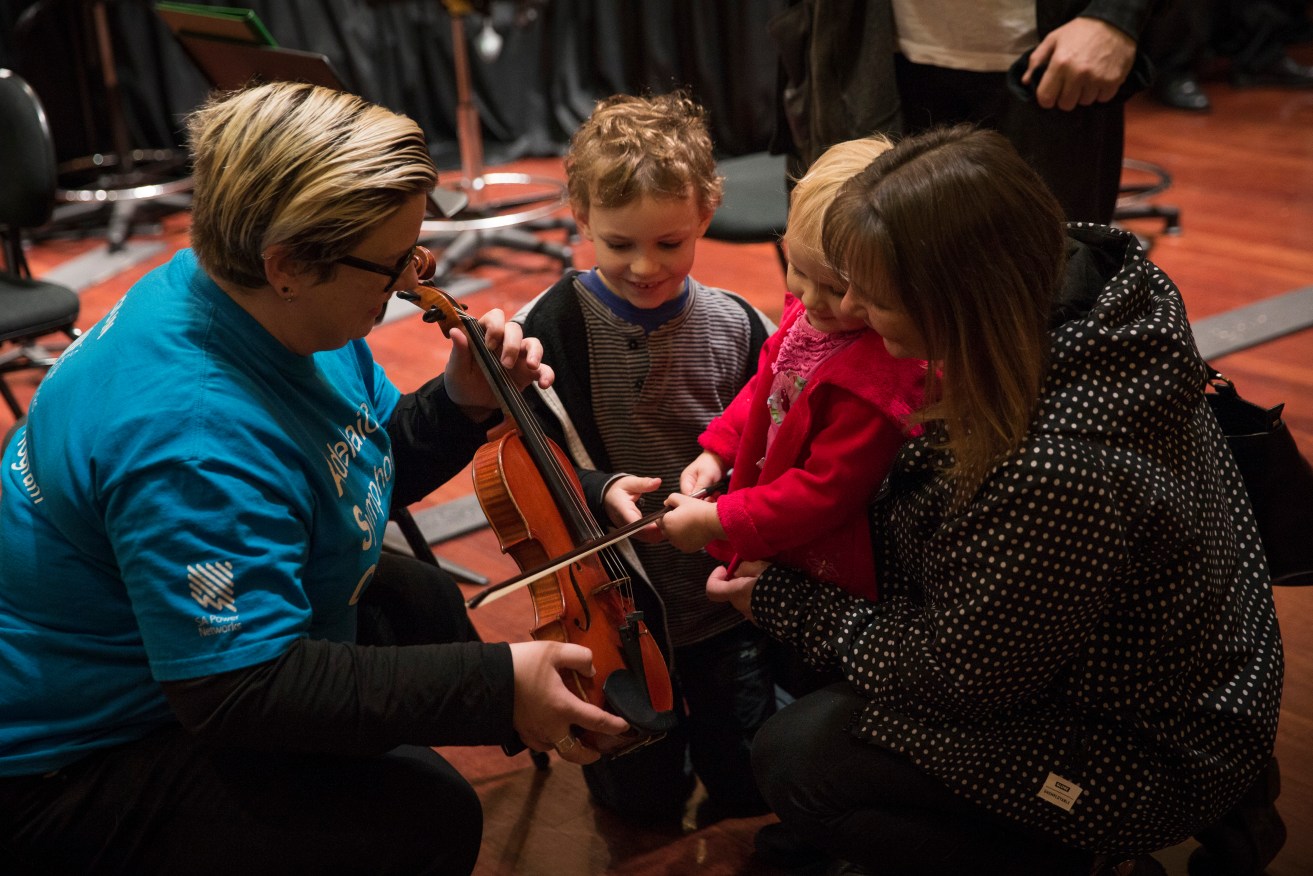
Why the ASO continues to invest in music education
The Adelaide Symphony Orchestra is SA’s largest performing arts organisation and, since 1936, has demonstrated its commitment to excellence in performance, innovation in programming and community engagement.

As an organisation focused on music making, music education sits at the heart of the ASO’s mission. In SA, however, music education is complex and perplexing. Non-government schools at all levels are likely to have well established and well-regarded music programs, the importance of which is not lost on the marketing of these schools which often feature music in their publicity.
In government schools, the picture is not so rosy. The 2005 National Review of School Music Education recognised that, across Australia, music education in schools is patchy with pockets of excellence here and there, but many students miss out because of the “lack of equity of access”. In SA, many government primary schools do not have the resources to provide a quality music education. Despite the review’s recommendations, little has happened since then to significantly change the situation.
SA government schools were the envy of other states in the 1970s and 1980s, with the Education Department’s Music Branch (now called Instrumental Music [IM]) providing group instrumental lessons, advisory staff and other resources for music education, and with the establishment of the four Special Interest Music Centres [SIMCs]. Whilst times have changed, it is important to remember that, despite regular threats to be cut, SIMCs and IM have managed to continue, with IM teaching group lessons to thousands of children. The Primary Schools Music Festival provides worthwhile musical experiences to large numbers of upper primary students, however, it is not a developmental music program across the primary years. The big problem is that there simply is not enough music education to go around in order for all children in primary schools to have access to classroom music lessons and to learn an instrument at school.
At the very least, in the early years and primary school years, basic music needs to be taught by generalist classroom teachers, with support and extension being provided by specialist music teachers. The National Music Mentoring program, which has begun to be implemented in SA, is a step in this direction. The recently announced Education Department Music Strategy is looking to improve the delivery of music education in public schools. It also recognises the numerous benefits of music education, including “developing thinking and learning skills, lifting literacy and numeracy standards, building social inclusion and reducing disadvantage”.
Research in neuroscience and music education, championed by Canberra’s Dr Anita Collins, is showing that nothing “lights up” the brain like music, and that, over a sustained time, learning to play a musical instrument and to read music, leads to enhanced development of neural networks. This can result in improved language development, executive functioning (such as paying attention, making decisions, empathy) and social skills.
The ASO’s investment in music education has resulted in a comprehensive suite of learning opportunities that caters for all levels of schooling and includes families and community. Since 2015, the ASO’s Learning Program has the Festival of Learning as its centrepiece, inspired, developed and presented by the award-winning British composer and educator, Paul Rissmann. The Festival is not a one-off excursion to see the ASO perform in the Adelaide Town Hall. The three main events use the highly effective learning formula of: initial teacher Professional Development (PD) session; students learning songs and doing related creative activities over half a term; attendance at, and participation in, the ASO performance. Both metropolitan and regional schools, including disadvantaged schools, are participating in this year’s Festival. For many of these children, it will be their first visit to the Adelaide Town Hall.
The ASO can’t fix the problems of music education in SA government primary schools. What it can do is to provide first-rate educational opportunities for large numbers of students – using the effective process of teacher PD, class preparation, active involvement in the ASO live music performance – to enrich school music programs. And in this way, the ASO invests in the future of our young people and plays its part in equipping the next generations with tools that will aid in solving complex problems in a rapidly changing landscape.
Prior to her retirement, Dr Jenny Rosevear AM was Senior Lecturer in Music Education at the University of Adelaide’s Elder Conservatorium (1985-2015), as well as Deputy Director of the Conservatorium (2010-2015).
If you’d like to read more about the impact of music education, consult The power of music by Prof Susan Hallam MBE, and https://www.facebook.com/BiggerBetterBrainsProject/.




